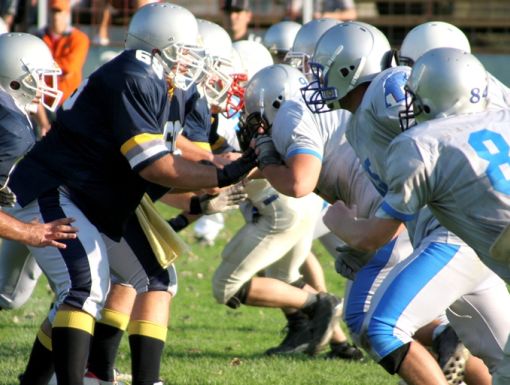
Can You Ruin Your Voice Screaming at Football Games?
It’s fall, which means that one of the most anticipated times of the year — football season— is in full swing! Many of us will find ourselves surrounded by massive groups of people as we cheer on our beloved teams.
Our region comprises some of the most passionate fans in college and professional football. It is no surprise, then, that cheering fans send decibel levels in local stadiums up to 128 decibels, which is just 12 decibels higher than a jet engine taking off. The noise level in our stadiums makes for a challenging environment for opposing teams to compete. While cheering with your fellow football fans is undoubtedly exciting, it can also have a temporary or permanent impact on your voice.
There are two folds of tissue in your larynx that are known as the vocal folds or vocal cords. When you resting, they are open to allow for breathing. When you speak, the vocal folds close as air from your lungs passes through them, generating the sound that is your voice.
On average, the vocal folds vibrate between 125 and 210 times per second. Increased amounts of collision over a short period of time — that is to say, a lot of loud voice use —can cause the delicate vocal fold tissues to become inflamed or even tear. As a result, your voice may sound breathy, lower-pitched, or rough following a period of heavy voice use. When screaming or yelling, as may be the case at a football game, the vocal folds collide at a greater impact. This, in turn, can lead to increased tissue inflammation and cause temporary or permanent changes to your vocal folds.
While showing support for our local teams is certainly important, it is also a good idea to be aware of how you are using your voice. Below are some tips to help you show your support for your favorite teams while keeping your voice healthy throughout the season!
Tips for vocal health:
* Drink lots of water. Water is beneficial for systemic hydration. When your throat feels dry, you are more likely to overwork your voice. Things like alcohol can lead to dehydration, so make sure to cut down on your alcohol consumption or offset this with more water.
*Try to avoid speaking over loud music or chants in stadiums. This can lead to increased strain and tension on the voice.
*If you’re heading out after the game, do not strain and talk over loud music or noisy environments.
*If your voice sounds hoarse, strained, or if you lose your voice, try to rest your voice as much as possible. Don’t try to push your voice out to be heard.
*Avoid smoking, coughing, and clearing your throat, as these behaviors irritate your vocal folds and can cause increased damage.
*If you notice a significant change in your voice that does not resolve after more than two weeks, schedule an appointment with an otolaryngologist (ENT) doctor with specialized training in voice disorders to address these concerns.
Author Ashley Rieffel, CF-SLP, is a member of the Ochsner Voice Center team along with Dr Jeffrey Marino, MD and Jodie Fornadley, CCC-SLP.
Learn more about voice care services at Ochsner.


